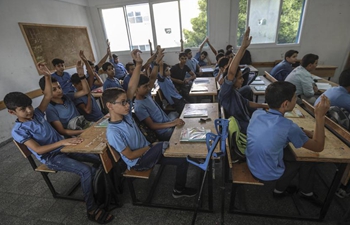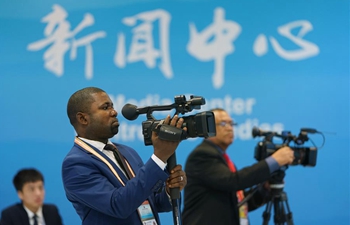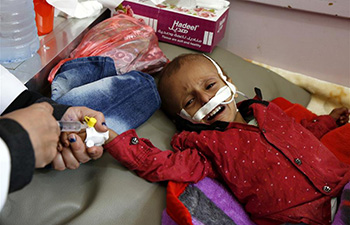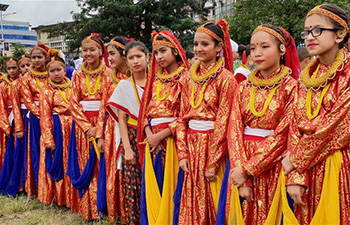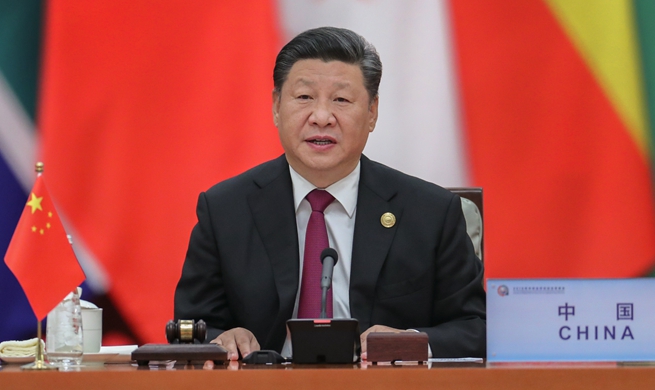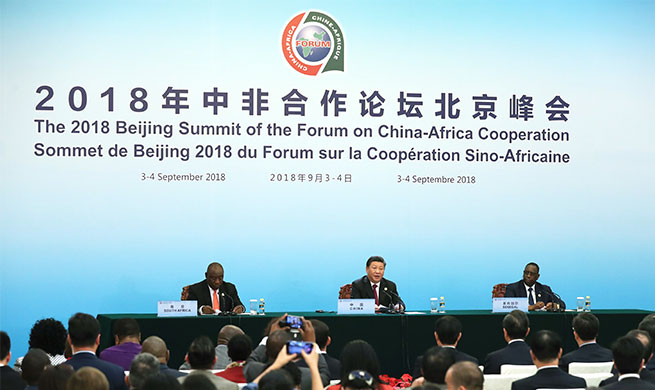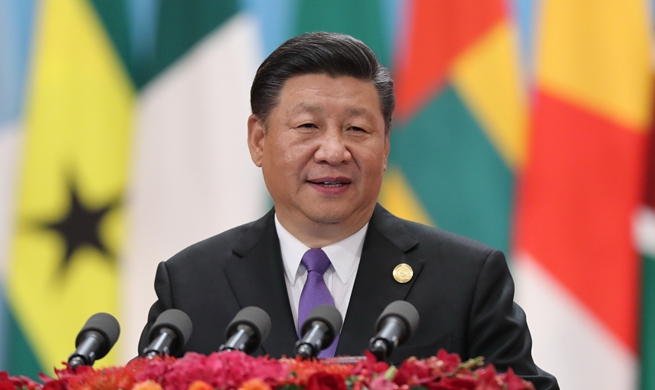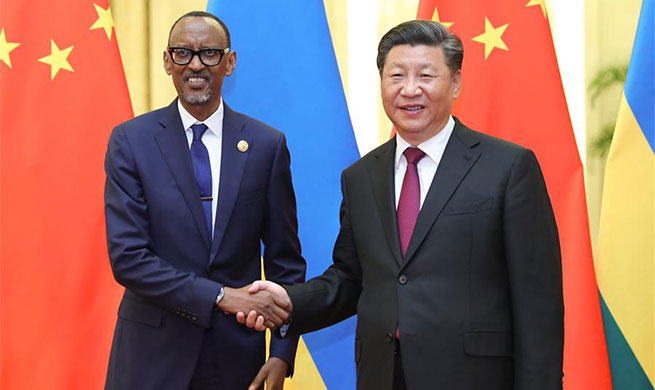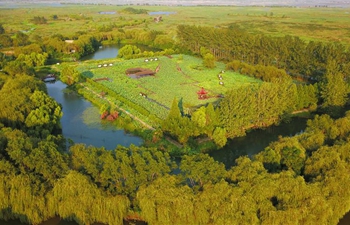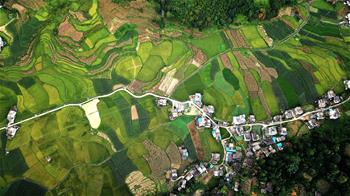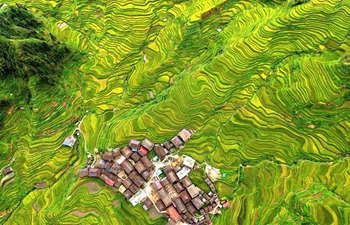by Humam Sheikh Ali
DAMASCUS, Sept. 4 (Xinhua) -- As the last major battle against the rebels in Syria looms, the pro-war plans such as the return of refugees and the reconstruction process are already on the table.
Since earlier this year, the rebels were driven out of key areas in the capital Damascus, the central province of Homs and the southern region, including Daraa province, which was the birthplace of the Syrian war.
While it is not only the place where rebels are still located, Idlib is also the last major one as it has become the gathering place for all the opposition fighters, who were dislodged from other parts of the country.
The Syrian army has been amassing forces and military gears around Idlib in recent weeks, as well a few rebel-held areas adjacent to Idlib such as the northern countryside of Hama province and the countryside of the Latakia province in northwestern Syria.
The preparations for the battle were coupled with a heated Western pressure by the United States, Britain and France, which alleged that the Syrian army was planning a chemical attack in Idlib.
The allegations were slammed by Damascus and its allies of Iran and Russia as a new wave of Western threats to prolong the crisis and to prevent the army from moving on with its offensive on Idlib.
After more than seven years of investing into the rebel factions and other opposition groups, the West is finding itself facing a reality that Syria's President Bashar al-Assad has almost won the war.
The Russian and Iranian sides, both key allies to Damascus, have been exerting major efforts to pave the way for the upcoming offensive in Idlib to close the chapter of battles and open a new chapter in the country's long-standing conflict.
Iran will host a summit on Friday that will group the presidents of Iran, Russia and Turkey to discuss the situation in Idlib as Turkey has a considerable sway over the rebels. The Turkish alliance with Russia and Iran is crucial at this stage amid a rift between Ankara and Washington.
Iran's Foreign Minister Mohammad Javad Zarif arrived in Syria's capital Damascus on Monday and held talks with Assad and top Syrian officials after he had visited Turkey.
He made it clear that the extremist group of the Levent Liberation Committee (LLC), also known as the al-Qaida-linked Nsura Front, must be "cleaned out" of Idlib.
He said the upcoming tripartite summit in Tehran will discuss ways to confront the extremist groups, mainly the LLC, amid efforts to separate this group from other less-radical militants who could agree on a reconciliation deal with the government without a broad military operation.
These efforts to end the situation in Idlib is also supported by Damascus officials, who said that achieving reconciliation in Idlib is a priority.
Analysts believe that a limited military campaign could be launched against the extremist groups while at the same time reconciliation deals could be made with other factions that want to achieve reconciliation with the government.
The main challenge to this battle, which could be the last major one in Syria, would be the threats of the United States and its allies.
The United States has been outright about its demands, which mirrors the Israeli ones, that are mainly about the rejection of the growing Iranian influence in Syria and the need for the Iranian-backed forces to leave the country.
Additionally, the end of the war against the rebels in Idlib would put Damascus in the face of a new task, which is the presence of the U.S. forces, which have entered the country without the consent of Damascus.
Hamidi Abdullah, a political expert, said the departure of the foreign forces that have come to Syria uninvited will be the next phase after the war on the rebels in Idlib.
The U.S. forces are now backing the Kurdish-led Syrian Democratic Forces (SDF) in their fight against the Islamic State's last positions on the eastern bank of the Euphrates River in the countryside of Deir al-Zour province in eastern Syria.
Representatives of the Syrian Democratic Council (SDC), the political wing of the SDF, have held talks with Damascus about the future of the Kurdish-held areas in northeastern Syria.
According to observers, a deal could be reached in a later stage about those areas with no military confrontation expected.
Syria and its allies are now attaching importance on two major post-war projects, namely the return of refugees and the rebuilding of Syria.
Over the past few months, government officials in Syria have called on the Syrian refugees in neighboring countries and abroad to return to Syria as the situation has become better.
Syrian Foreign Minister Walid al-Moallem said that the government welcomes the return of the refugees to their country, stressing that their return would be safe and that the government would try to facilitate all economic and social conditions for them.
Several batches of refugees have already returned from Lebanon in recent weeks and months.
Pro-government al-Watan newspaper said in an article published Tuesday that nearly 1.4 million Syrians have returned to the country in 2018.
In August, Alaa Ibrahim, governor of Rif Damashq Governorate, told Xinhua that 25,000 refugees had returned from Lebanon within four months amid ongoing process.
Ibrahim said the government even grants the draft dodgers who are returning to the country six months to settle down before reporting to the military service.
No retribution is being practiced against returnees, including those with criminal records who had fled the country illegally, he noted.
Out of an estimated pre-war 22-million population in Syria in 2016, 13.5 million were identified by the United Nations as in need of humanitarian assistance, with more than six million forced into internal displacement, and about five million fleeing outside Syria.




